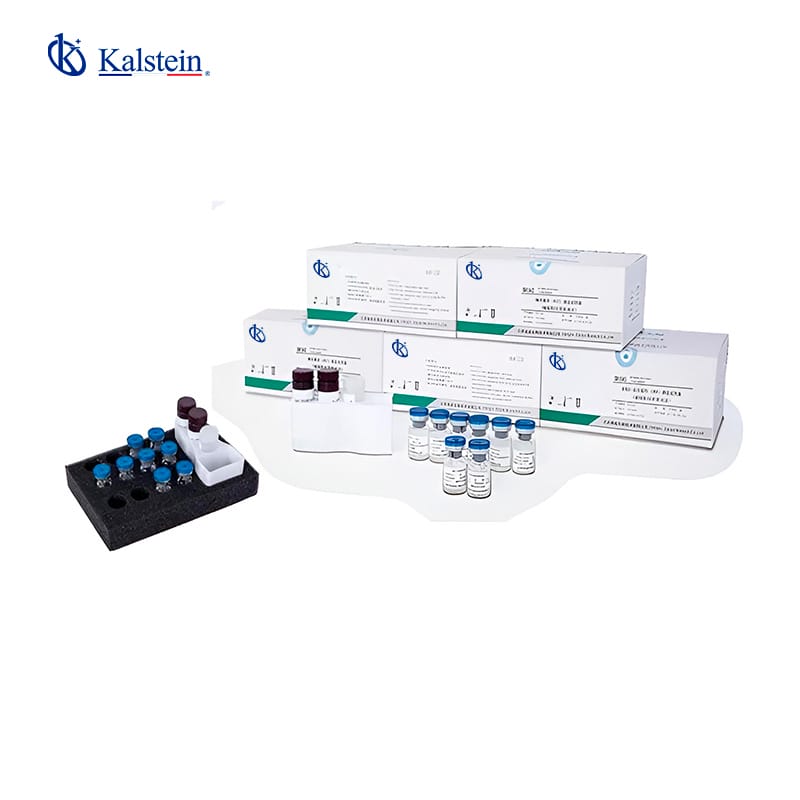Product Description
The Hepatic Fibrosis Test is a cutting-edge diagnostic tool designed to provide comprehensive insights into liver health. This test, available in models YRA317 through YRA321, is pivotal for measuring key parameters associated with hepatic fibrosis. Each model targets a specific biomarker: PIIINP, CIV, LN, HA, and CG, respectively. These biomarkers are critical in assessing the degree of liver fibrosis, aiding in early diagnosis and monitoring progression.
The test operates using the Chemiluminescence Immunoassay (CLIA) method, known for its sensitive and accurate detection capabilities. Packaged conveniently with 50 tests per box, this product also aligns with various platforms offering flexibility of 100, 24, or 48 tests per box with Alkaline Phosphatase (AP). It is essential to store the kits at a temperature range of 2-8°C to maintain their efficacy and reliability. The test includes 2 or 6-point calibration options ensuring precision in results.
Beyond its technical efficiency, the Hepatic Fibrosis Test holds CE, ISO13485, and FSC certifications, underscoring its compliance with international standards for quality and safety. Whether you are a clinical laboratory or a research institution, the combination of these features facilitates superior diagnostics and enhances patient care.
| Model | YRA317 | YRA318 | YRA319 | YRA320 | YRA321 |
|---|---|---|---|---|---|
| Tested Parameter | PIIINP | CIV | LN | HA | CG |
| Analysis Mode | CLIA | ||||
| Package Specification | 50T/BOX | ||||
| Platform | 100T/BOX, 24T/BOX, 48T/BOX AP(Alkaline Phosphatase) | ||||
| Storage | 2-8°C | ||||
| Calibration | 2/6 Points | ||||
| Certification | CE, ISO13485, FSC | ||||
Market Price
The price of the Hepatic Fibrosis Test in the market can vary based on the supplier, volume of purchase, and specific model required. Generally, the cost for these specialized tests tends to align with the advanced technology and precision they offer. On average, the price range can start at a few hundred dollars per box, potentially increasing depending on specific configurations or additional support services.
To receive an accurate and competitive quote tailored to your specific institutional needs, we encourage prospective buyers to request a quote through our innovative Kalstein Plus platform. This streamlined system ensures you receive the best market prices and the highest quality service.
Frequently Asked Questions
What is the main purpose of the Hepatic Fibrosis Test?
This test is primarily used to determine the extent of liver damage or fibrosis through specific biomarkers, allowing for early diagnosis and monitoring in patients with liver-related conditions.
What are the storage requirements for this test kit?
The test kits should be stored at temperatures between 2-8°C to maintain their reliability and accuracy.
How do the calibration options enhance reliability?
Offering 2/6-point calibration ensures that the test results are precise and can be consistently replicated, vital for maintaining high diagnostic standards.
Advantages and Disadvantages
Advantages of using the Hepatic Fibrosis Test include its high level of accuracy and sensitivity afforded by the CLIA method, multiple calibration points for precise results, and its comprehensive certification which signifies quality and compliance. The tailored approaches for different biomarkers provide targeted insights, making it invaluable for liver health management.
There are some disadvantages to consider. The initial cost may be higher compared to more traditional testing methods, and proper storage requirements must be strictly followed to prevent degradation of the tests. Furthermore, being a specialized test, users may require additional training to interpret results accurately.
Product Use in the Field
In clinical settings, the Hepatic Fibrosis Test is used extensively for diagnosing and monitoring liver diseases. Its utility is significant in evaluating liver health in patients with conditions such as hepatitis, cirrhosis, and non-alcoholic fatty liver disease (NAFLD). The test’s high precision and specific biomarker targeting offer actionable data, aiding healthcare professionals in making informed decisions.
In research, the test is indispensable for studies focusing on liver pathology and the effectiveness of potential treatments. It provides valuable quantifiable biomarkers that are crucial for the development of new therapies and understanding disease progression.
Recommendations
To maximize the benefits of the Hepatic Fibrosis Test, institutions should ensure staff are adequately trained to handle and interpret the tests. Regular calibration checks using the provided options should be conducted to maintain test accuracy. Additionally, maintaining strict adherence to storage requirements is crucial for optimal test performance.
Leveraging the support provided by Kalstein through customer service and the Kalstein Plus platform can enhance the user experience, ensuring that users always receive the most suitable configurations and support.
If you’re seeking a blend of innovation and quality, you have come to the right place. At Kalstein, we offer you the luxury of exploring our exclusive catalog of laboratory equipment. We manufacture each piece of equipment with a level of excellence. Our intuitive and agile online purchasing channels are designed for your convenience, ensuring the most friendly prices. Do not hesitate any longer, we bring science to life, it is time to become part of our community. https://kalstein.net/en/product/hepatic-fibrosis-test-yra317-yra321/.


